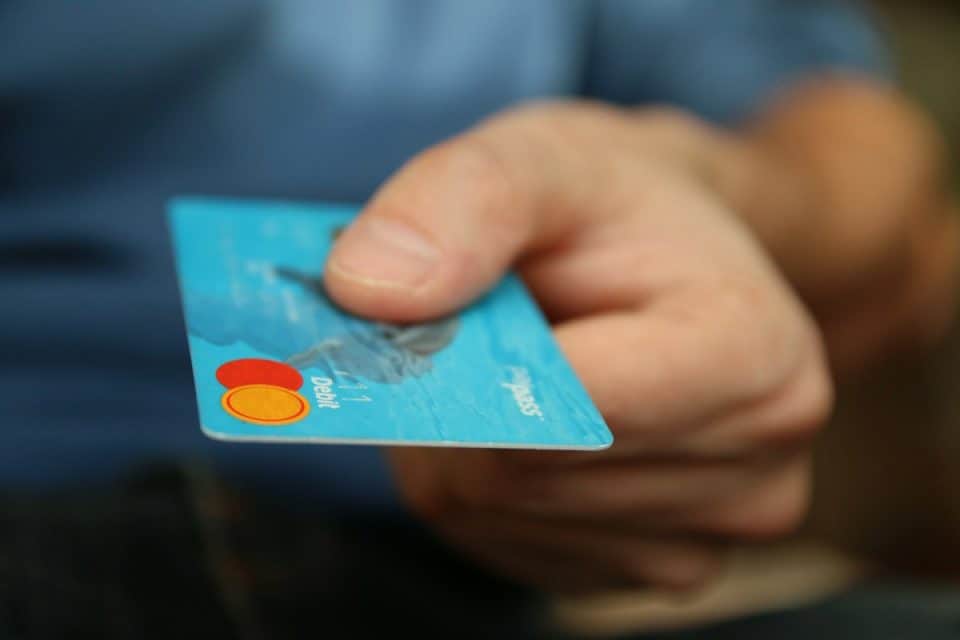Scammers are at an all time high right now and it just continues to get more and more out of control each day. Too many people are falling for these scams and getting taken advantage of. There is constantly stories in the news of individuals falling victim to the believable and sometimes terrifying stories these scammers are feeding them, causing the victims to hand over large sums of money, property, and personal information in fear of harm to themselves or a family member due to a threat made by the scammer. Becoming knowledgeable in how to spot a scam can potentially prepare you and prevent loss if you are ever faced with this situation. We urge you to think twice before willingly obeying these predators and to report all scams to authorities. Remember, it if sounds too good to be true, it probably is.
Most common types of scams

In order to educate people on the types of scams that are littering individual’s lives, the FBI has compiled a list of the most common scams that they typically encounter and are most frequently reported to them. Becoming knowledgeable in the different types of scams that are being used can help you better recognize if you or someone you know is being scammed. There are still many types of scams prevalent that are not on this list; however, being aware of the most common will hopefully prevent becoming victimized by a scam.
Advance Fee Schemes: A victim pays money to someone in anticipation of receiving something of greater value—such as a loan, contract, investment, or gift—and then receives little or nothing in return.
Business Fraud: Activities undertaken by an individual or company in a dishonest or illegal manner designed to be advantageous to the perpetrating person or establishment.
Counterfeit Prescription Drugs: Illegal, fake medicines that may be hazardous to your health.
Credit Card Fraud: The unauthorized use of a credit or debit card, or card number, to fraudulently obtain money or property.
Frauds Against Seniors: Fraud schemes targeting senior citizen’s lifestyle and savings.
Fraudulent Cosmetics and “Anti-Aging” Products: Widespread access to health and beauty products, including “anti-aging” products, that consumers do not know are fake.
Funeral and Cemetery Fraud: Unscrupulous operators overcharging expenses for prepaid funeral services and listing themselves as beneficiaries.
Healthcare Fraud or Health Insurance Fraud: The FBI is the primary investigative agency involved in the fight against health care fraud, with jurisdiction over both federal and private insurance programs.
Identity Theft: When someone assumes your identity to perform a fraud or other criminal act.
Internet Auction Fraud: Entering into Internet auction transactions with subjects exhibiting irregular behavior or making odd payment requests.
Investment Fraud: An offer using false or fraudulent claims to solicit investments or loans, or providing for the purchase, use, or trade of forged or counterfeit securities.
Letter of Credit Fraud: Often attempted against banks by providing false documentation to show that goods were shipped when, in fact, no goods or inferior goods were shipped.
Market Manipulation Fraud: Commonly referred to as a “pump and dump”—creates artificial buying pressure for a targeted security, generally a low-trading volume issuer in the over-the-counter securities market largely controlled by the fraud perpetrators.
Nigerian Letter or “419” Fraud: Nigerian letter frauds combine the threat of impersonation fraud with a variation of an advance fee scheme in which a letter mailed, or e-mailed, from Nigeria offers the recipient the “opportunity” to share in a percentage of millions of dollars that the author—a self-proclaimed government official—is trying to transfer illegally out of Nigeria.
Non-Delivery of Merchandise: A scheme most often linked to Internet auction fraud, but also can be considered a form of business fraud in certain cases.
Online Vehicle Sale Fraud: Criminal perpetrators may post fraudulent online classified advertisements offering vehicles for sale that are not, nor have ever been, in their possession.
Ponzi Schemes: “Ponzi” schemes promise high financial returns or dividends not available through traditional investments. Instead of investing the funds of victims, however, the con artist pays “dividends” to initial investors using the funds of subsequent investors.
Prime Bank Note Fraud: Scammers encouraging the victim to send money to a foreign bank, where it is eventually transferred to an off-shore account in the control of the con artist. From there, the victim’s money is used for the perpetrator’s personal expenses or is laundered in an effort to make it disappear.
Pyramid Schemes: The money collected from newer victims of pyramid schemes is paid to earlier victims to provide a veneer of legitimacy. In pyramid schemes, however, the victims themselves are induced to recruit further victims through the payment of recruitment commissions.
Redemption/Strawman/Bond Fraud: Using fraudulent financial documents—often referred to as “bills of exchange,” “promissory bonds,” “indemnity bonds,” “offset bonds,” “sight drafts,” or “comptrollers warrants”—that appear to be legitimate.
Reverse Mortgage Scams: Professionals in a multitude of real estate, financial services, and related companies to steal the equity from the property of unsuspecting senior citizens or to use these seniors to unwittingly aid the fraudsters in stealing equity from a flipped property.
Telemarketing Fraud: When you send money to people you do not know personally or give personal or financial information to unknown callers, you increase your chances of becoming a victim of telemarketing fraud.
How to Spot a Scam

Scammers will typically try to contact their victims through phone calls, text message, or emails. Looking for certain signs that may seem suspicious or confusion will help to alert you that the request or conversation is with a scammer and they are trying to commit fraud.
The offer seems too good to be true
Scammers frequently tell their victims farfetched information to try to get their attention, usually involving the topic of money. For instance, scammers may try to advise you that you have a large amount of money that is left to you from an unknown relative or that you are being awarded loans or cash prizes that are for contests that you never entered. If you are suspicious that you are being scammed, you can search for the information they are telling you on the internet and most likely you will find a similar story of a scam that has previously happened to someone else.
Someone is requesting to have your private information
Scammers will ask you to provide personal information such as your bank account number, social security numbers, names and dates of birth for you and your family members, addresses, phone numbers, email addresses. Under no circumstances should this information be given to anyone other than a trusted source.
There are many grammatical errors in their correspondence with you
Often times, scammers are from a different country and when they try to have conversations with you, there may be spelling mistakes, grammatical errors, unfinished sentences, random capitalizations, etc. Scammers frequently use translation apps or websites to create their message and the formatting and language doesn’t make sense.
Requesting fees
A scammers main goal is to gain information or money from you. They will ask you to provide fees in the form of a wire or advance payments such as money orders or cashier’s checks. Sometimes the scammer will even try to convince you that they will give you a certain amount of money but it order to receive the money, you must first pay them.
Suspicious email domains
When receiving an email that you are unsure of it’s authenticity, take note of the domain name of the contact. Many legitimate business will use an email domain with their company name rather than free services such as Hotmail or Yahoo.
Lack of physical address
If the supposed company requesting money does not have a physical address or their address seems made up, it is most likely a fake company. If you are unsure, you can always do an internet search to see if it is an actual registered address.
Request to access your computer
Never allow individuals posing as technicians to have access to your computer. They may claim that they need to remotely enter your computer to fix an issue but in reality they are searching for personal information and potentially downloading viruses to be able to see what you are doing on your computer without your knowledge.
Untraceable payment method
Scammers tend to use payment methods that are untraceable so they cannot be located by authorities in the event they are reported. A real business will have genuine banking details and will not require the use of payment methods such as Western Union to receive and transfer funds.
Pressure to provide payment immediately
Scammers will use tactics to pressure or scare their victims into quickly providing money to them. They may make threats to hurt a member of your family if you do not give them money and agree to not contact law enforcement or they may even urge you to act quickly to prevent losing out on an opportunity to receive money.
Tips to Protect Yourself From Scams

- Beware of credit card schemes, bogus investment opportunities, and free vacation offers.
- Review carefully the written information about any offer before making any financial commitments
- Never give anyone your social security, credit card, or bank account number or any other personal information unless you initiated the conversation
- Contact your local better business bureau to learn about current scams
- Sign up for the do not call registry to deter telemarketers. 888-382-1222
- If you have been the victim of a scam or suspect fraud, report it to local law enforcement immediately
- Scams are at a higher rate during the holidays,taking advantage of “the giving season”. People are more soft-hearted and more likely to donate money during holidays more than any other time of year.
- Keep in mind that scammers can pose as friends, family, and government agencies.
- Many scammers will use names of specific government agencies and claim they are the FTC (federal Trade Commission), FBI (Federal Bureau of Investigations), and the IRS (Internal Revenue Service). Using names that people are familiar with and intimidated by causes individuals to be scared into believe it is really that company contacting them.
- Teach others, especially elderly family members of these types of scams.
Source: Common Fraud Schemes, 10 Signs of Scam
Picture Credit: Pixabay









































